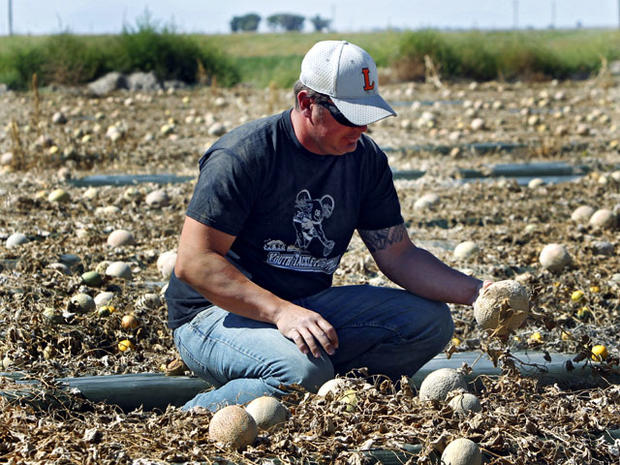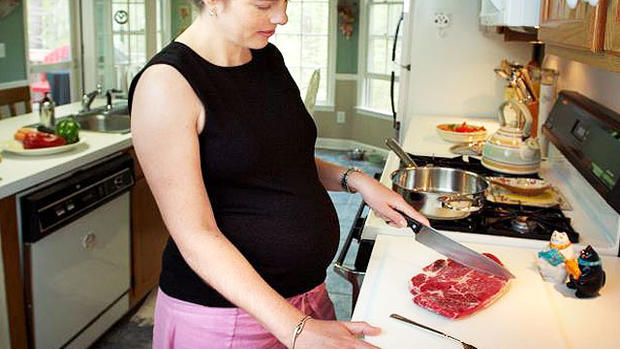Listeria outbreak leaves farm town reeling as FDA hunts for clues
(CBS/AP) The owner of the cantaloupe farm linked to the deadly listeria outbreak said he has no idea how the bacteria got into his crop supply.
PICTURES: Listeria: 7 key questions answered
Eric Jensen, co-owner of Jensen Farms in Holly, Co., is now left to wonder, as he walks through fields of his rotting cantaloupe crop. Meanwhile, health officials have been in and out of the small town of 800 residents, in search of answers for the outbreak that infected 72 people across 18 states and killed 16.
The recall on September 10th prompted the farm to halt production, and workers have stopped irrigating and picking the crops.
"There are a lot of things I'd like to say right now, but now is not the time," Jensen said, citing pending litigation.
Regardless of how it happened, the situation has left the town and farm reeling.
Before Listeria infections started showing up, field workers would bring melons into town to share - just as they have for generations. And it wasn't uncommon for Holly residents to stop by Jensen Farms to buy freshly picked cantaloupe. But now, not even the local grocery store carries cantaloupes.
While no one in Holly has been infected with Listeria, residents are frightened for their high-risk friends and relatives who can still get the infection because of its lengthy incubation period.
"I ate that cantaloupe, and I gave some of it to my 97-year-old mother,'" said Wanda Watson, co-owner of the Tasty House Cafe. "I'm watching her real close. It's scary because it could be up to two months before you get sick."
The FDA is looking at the farm's water supply, and the possibility that Listeria-carrying animals wandered onto the farms, as potential causes for the outbreak, Sherri McGarry, a senior adviser for the agency, said.
Listeria bacteria grow in muddy, moist conditions and are often carried by animals. The water supply for farms in the region comes from wells and irrigation ditches that tap the Arkansas River.
Holly is about a 90-minute drive from the town of Rocky Ford, home to Colorado's famous cantaloupe growing region. The cantaloupes are prized for their sweetness and are so coveted that farms like Jensen's - 70 miles away - carry the brand name "Rocky Ford Cantaloupe."
The Listeria scare has some residents wondering about the future for cantaloupe farming in Colorado. But some residents, like Holly Mayor Viola Welcher, are less concerned.
"I'm not afraid of eating cantaloupe. I'd eat one right now," Mayor Welcher said. "We've all eaten it and no one in our area has gotten sick."
The CDC warned Listeria infections may still occur through October. Listeria generally sickens the elderly, pregnant women and others with poor immunity. The CDC said the median age of those sickened is 78 and that 1 in 5 who contract the disease can die from it. Symptoms include fever and muscle aches, often with other gastrointestinal symptoms.
Unlike many pathogens, Listeria bacteria can grow at room temperatures and even refrigerator temperatures - and can linger long after the source of the contamination is gone. Health officials say people who may have had the contaminated fruit in their kitchens should clean and sanitize any surfaces it may have touched.


